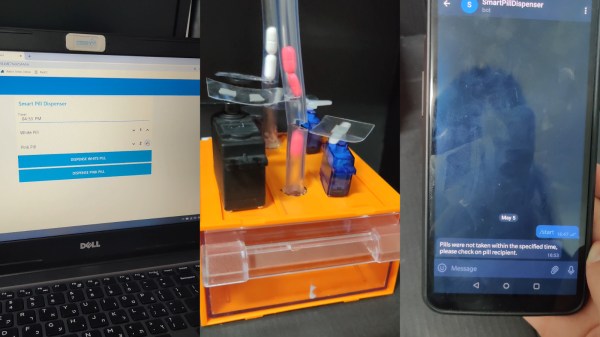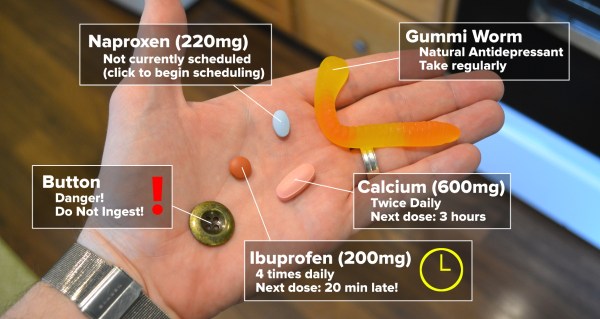Everything has to be smart these days, and while smartening things up is a good incentive to tip your own toes into the whole IoT field, many of these undertakings are oftentimes just solutions looking for a problem. Best case, however, you actually make someone’s life easier with it, or help a person in need. For [Guli Morad] and [Dekel Binyamin], it was a bit of both when they built their automated pill dispenser: help people dependent on taking medication, and ease the mind of those worrying whether they actually remembered to.
Using an ESP8266 and a rather simple construct comprised of a set of servos with plastic sheets attached, and a plastic tube with strategically placed cuts for each pill type, a predefined amount of each of the pills can be automatically dispensed into a box — either at a given time, or on demand — using a Node-RED web interface. A reed switch mounted on the box then monitors if it was actually opened within a set time, and if not, informs emergency contacts about it through the Telegram app. Sure, a tenacious medication recipient might easily fool the system, but not even adding a precision scale to make sure the pills are actually taken out could counter a pill-reluctant patient of such kind, so it’s safe to assume that this is primarily about preventing simple forgetfulness.
Their proof of concept is currently limited to only two different types of pills, but with enough PWM outputs to control the servos, this should be easily scalable to any amount. And while the built may not be as sophisticated as some pill dispensers we’ve seen entering the Hackaday Prize a few years back, it still gets its main task done. Plus, when it comes to people’s health, a good-enough solution is always better than a perfect idea that remains unimplemented.
Continue reading “Did Grandma Remember Her Pills? This Dispenser Tells You!”
















